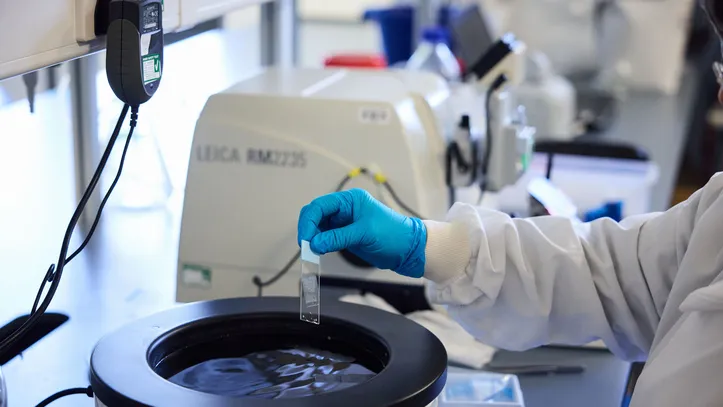
Our research has provided the most detailed picture yet of how weight loss improves health. The findings offer important clues about how losing weight can help people with type 2 diabetes improve blood sugar levels or go into remission, and could guide the development of new treatments.
Published in Nature and funded by us, the Medical Research Council, and Wellcome Trust, the study uncovered a range of positive effects that occur inside fat tissue after significant weight loss.
The research, led by Dr William Scott at Imperial College London, analysed more than 170,000 cells from fat tissue samples taken from 70 people, including people living with obesity before and after they’d had bariatric surgery and lost weight.
Using a technique called single-cell sequencing, the team built the first in-depth map showing how weight loss affects the body at a microscopic level.
An internal ‘reset’
The findings show that weight loss prompts fat tissue to clear out old, damaged cells that have stopped working properly. Removing these cells may help to reduce harmful inflammation and help fat tissue to function better.
The researchers also discovered that weight loss jumpstarts a process known as lipid recycling, where fats are broken down and reused, rather than stored. This may help prevent the harmful build-up of fat in organs like the liver and pancreas, helping them work better to manage blood sugar levels.
These changes may help explain how losing weight can bring about life-changing benefits, like improved insulin sensitivity and blood sugar levels, and remission of type 2 diabetes.
Our funded research Dr William Scott said:
“We’ve known for a long time that weight loss is one of the best ways to treat metabolic conditions, such as type 2 diabetes, but we haven’t fully understood why. This study provides a detailed map of what may actually be driving some of these health benefits at a tissue and cellular level.
“We hope that new information from studies like ours will start to pave the way for developing better treatments for type 2 diabetes and other health problems.”
Towards new treatments
Next, with our support into fat cells and type 2 remission, Dr Scott and his team are focusing specifically on fat tissue in people with type 2 diabetes, before and after remission, using the same cutting-edge technologies.
By identifying the specific cells, genes and proteins involved in this process, the team hopes to uncover new biological ‘switches’ that drive type 2 diabetes remission. This could pave the way for new treatments that replicate the benefits of weight loss to bring about remission.
Dr Faye Riley, Research Communications Lead at Diabetes UK, said:
“For some people, losing weight can put their type 2 diabetes into remission. But weight loss is challenging, and current approaches don’t work for everyone. This research offers a rare window into the changes that occur in fat tissue during weight loss, changes that may be key to improving health and putting type 2 diabetes into remission.
“By deepening our understanding of these processes, the study could open the door to innovative therapies that mimic the effects of weight loss, potentially helping people with type 2 diabetes to manage their condition or go into remission.”
Read the findings in Nature.
